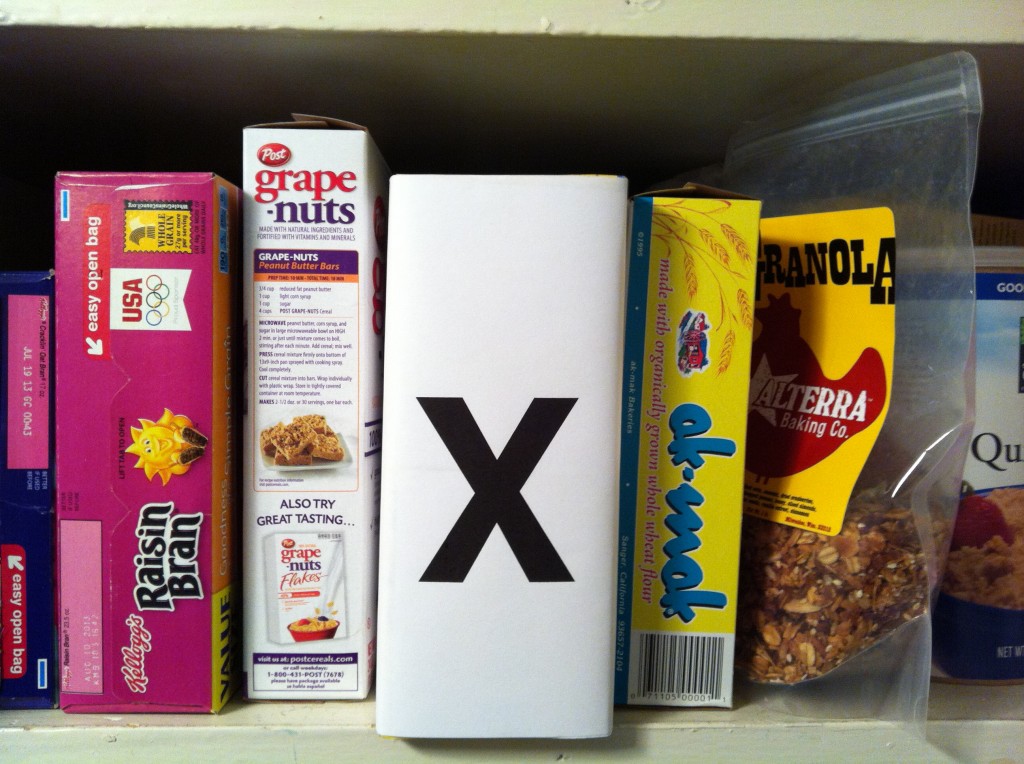 This fall I was invited to an event at which there was a speaker on “Developing Your Personal Brand.”
This fall I was invited to an event at which there was a speaker on “Developing Your Personal Brand.”
I’m surprised that personal brands are still even talked about, just as I am surprised that people still use the phrase “at the end of the day.” Both concepts are tired and hackneyed and need to go out of style already.
The whole idea behind personal branding is coming up with a set of skills and positive traits you possess, fine-tuning them, living and breathing them, and saturating the workplace, the marketplace, the world with them. This then becomes your “brand,” what you are known by. That intangible thing about you that people come to trust.
Personal branding got its start in the corporate world, and now there are a whole slew of people making fantastic livings out of being personal brand strategists, teaching you how to package and market yourself in the workplace to the powers that be, just as Ford does with its vehicles, Apple does with its devices, and Target does with its stores in the marketplace to consumers.
Today, personal branding has moved beyond the office tower and been extended to the college senior looking for her first job, the professional athlete, the artist, the reality show star, the young father pushing a baby stroller down the sidewalk.
The problem is that, even at the corporate level, branding can fail. Perhaps this is because, as Hunter S. Thompson states, “the truth is never told during the nine-to-five hours.” And “truth,” especially as a construct, can be fallible.
Last week I wrote about an experience I had at my local Target that told me something about the company that it does not reveal in its brilliant TV commercials. There is a trendy grocery store whose self-branded products I have opened and been gravely disappointed in one too many times, despite the promise of its packaging and what its brand is designed to tell me. I won’t be fooled again.
 If big companies, who are so distant from us, who themselves are so distant from their source materials—their stuff is so packaged and strategized and gleaming—if big companies can fail at this, then we mere human beings don’t stand a chance. We are too quirky and moody and flawed to be personally branded. The only way it could halfway work is if we go immediately from work to home, conduct all of our nasty business behind locked doors, and then emerge the next morning, as shiny as the sun, ready again for public consumption.
If big companies, who are so distant from us, who themselves are so distant from their source materials—their stuff is so packaged and strategized and gleaming—if big companies can fail at this, then we mere human beings don’t stand a chance. We are too quirky and moody and flawed to be personally branded. The only way it could halfway work is if we go immediately from work to home, conduct all of our nasty business behind locked doors, and then emerge the next morning, as shiny as the sun, ready again for public consumption.
But it just doesn’t work like this.
I once had a boss, who was a vice president and fifteen years younger than I, who was on maternity leave when I joined the ranks. For the six weeks between the time I started and she returned to the office, I heard a lot about her. The mystique was on pretty high tilt when she and I finally met, and I have to admit, I was fascinated. At her age, I still didn’t know what I wanted to be, while she obviously had already climbed pretty far up the corporate ladder. It was rumored she had a very high IQ, and she came to work in a perky hair style you just knew cost eighty bucks and designer suits that came from small boutiques girls like me had never heard of. She smiled and laughed a lot at staff meetings. She also had a little bit of nutty professor about her: almost every day she came to work her designer shoes were badly scuffed, or she had a run up the back of her pantyhose, or there were water spots on them from a puddle she’d stepped in. It was quite endearing, actually.
This was her personal brand. You could tell. She hung her hat on it, lived it, breathed it. It’s how she got the attention of the people who were where she wanted to be.
The problem is, like all the rest of us poor slobs, she had a dark side, which can’t be camouflaged by Louis Vuitton bags or Chanel lip color. If she didn’t like you, she had a way of cornering you when no one else was around and verbally abusing you with the darkest, most evil lies about your character and the job you were doing. She “motivated” so many people in our office in this way that it not only started to get around there (“Be careful!”), but her reputation—her sullied brand—also went enterprise-wide.
A few years after I’d left, I was quite tickled when I heard that the entire organization was undergoing mandated bullying awareness training.
 Me, I’d rather know what it is I’m dealing with, as up front as possible, the good as well as the not so good. I’m hoping—we’re all hoping—that it is the good in you that will rise to the top first, and plentifully. Because then when your dark side arises—and it will—we are far more likely to be forgiving. There is a story I read long ago—I wish remembered the title—about a king who ruled with kindness who was an occasional screw-up, and another king who ruled with cruelty who every once in a while showed kindness. Guess which “brand” won?
Me, I’d rather know what it is I’m dealing with, as up front as possible, the good as well as the not so good. I’m hoping—we’re all hoping—that it is the good in you that will rise to the top first, and plentifully. Because then when your dark side arises—and it will—we are far more likely to be forgiving. There is a story I read long ago—I wish remembered the title—about a king who ruled with kindness who was an occasional screw-up, and another king who ruled with cruelty who every once in a while showed kindness. Guess which “brand” won?
As blogger Megan Berry puts it: “Personal branding is just a new way to talk about reputation.” I would add that it is designed to hide just as much as it promotes. When I hear someone talking about his or her personal brand, right away I wonder, “OK, what are you hiding?”
If I had a personal brand, it would be: Writer, teacher, blogger, amateur photographer, musician. Half a brain. Creative. Disciplined. A person who loves and is loved. Outspoken, sometimes to a fault. Watcher of bad TV and good films. Control freak. Impatient. Anxiety-ridden. Moody. Terrible sleeper.
If you had a personal brand, what would it be? Be brave and give us the real deal, not the glossy version. We’re only going to find out what you’re really all about in the end.
The concept of personal branding has actually been around for a while. Tom Peters brought it to the forefront in a 1997 article he wrote for Fast Company.
For more a more sardonic take, read Megan Berry’s short but sweet blog post, as well as Arienne Holland’s “Personal Branding is Bullshit” and Tim Berry’s response.


Interesting idea, to break my persona down to its essential elements–the core “me”. Persona vs. person. Not wishing to be clouded by my own rose colored glasses, I asked my husband for his courageous input. Here is the consensus: Demanding, moral, funny, stubborn, generous, intelligent, fallible, depressed, loving, lazy (that is my own judgement, hubby being too polite to say it), frugal, impatient, painfully shy, loyal, curious, cook. How the hell does anyone market that?
Exactly. I’m afraid, my dear, that your story is too varied to be marketable. We need to put our people on it and boil you down to your essential elements so that our pea-brains can understand and remember you.
I try to live my life by the Buddha’s teachings of compassion and selflessness. Personal “brand” seems very egotistic. Me, I, mine. Separating one from everything.
It strikes me, too, Joan, that personal branding is narcissistic. I would have to conduct research to say for sure, but it used to be that the largest companies making the best products struggled for brand recognition and recall. People would remember cars they rented on vacation, for example, but only, say, that it was a black SUV, not the make or model, even with the logo staring us in the face from the steering wheel. If big companies have difficulty getting people to remember their brands, we individuals are sunk. That we think we can crowd the marketplace with 2 million or 500 million more “brands” is self-centered indeed.